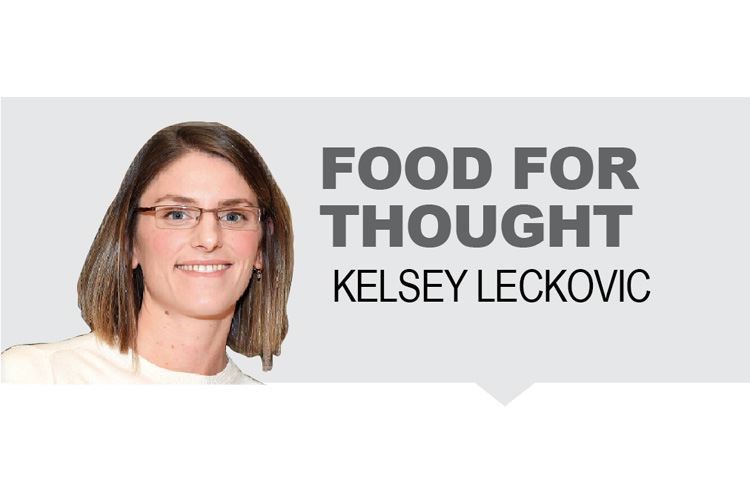How do most people keep themselves informed of up-to-date affairs? The morning paper and the nightly news are no longer the only go-tos for current events. Instead, search engines and social media platforms are increasingly popular means for staying informed.
While this can arguably lead to a more superficial and selective understanding of world events, as well as a pull towards a biased, one-sided viewpoint, it can also mean your consumption of other information may be influenced, based on the results you choose to click on and the selective nature of the algorithms utilized by that search engine.
Searching for "current events" could leave you with millions of results. However, if you show interest in a particular topic by clicking on it, such as "overcrowding in hospitals," your future results are more likely to centre around hospitals, health care and other similar topics.
Much in the same way, Google searches for topics relating to health and diet may likely pull you in a particular direction based on the results you click on (i.e. what topics you've shown interest in).
Since searching for information online can leave you with countless results, those results need to be delivered in a way that provides the user with information that is most relevant to their query, otherwise you'd be spending hours and hours trying to find what you're looking for.
Let's say you've typed "how to lose weight" into Google. Doing so will likely result in millions of links relating to weight loss products, blog posts, articles, "top tips" and fad diets.
Now let's say you click on a result for an article referencing the keto diet. Maybe you've had a friend who's tried it, you've seen advertisements for keto products or you've heard of a celebrity who's lost weight on the keto diet and you want to find more information and see what it's all about.
When you click on that "keto diet" result, you're giving Google information on what topics interest you, so the next time you search "how to lose weight?" or a related topic, you'll likely be presented with results which lean heavier towards a keto/low carbohydrate diet.
Not only can this sway the consumer into believing this diet to be a more popular (and reputable) diet than it actually is, but repeated exposure to that particular result can strongly influence the reader/consumer into believing baseless claims.
A search engine, such as Google, makes money based on growth and growth is associated with engagement. In order to get users to engage, algorithms feed them a wealth of content based on what they've previously viewed. Algorithms cater to a user's currently held beliefs, amplifying them and fostering bias, potentially leading to the spread of misinformation and the belief that an individual's own personal opinions are widely held, especially when those opinions are motivated by wishful thinking.
If a consumer is already hopeful to believe there's a quick "solution" to losing weight or achieving a desired result, they'll be more likely to pursue these headlines and to stop gathering information when the evidence gathered so far (i.e. the Google search results) confirms views or prejudices they would like to be true.
Once a viewpoint has been formed, it's more likely that a consumer will not only embrace information that confirms that view, but also ignore or reject information that casts doubt.
I'm not suggesting that algorithms remove free thought, just that it's important to be aware that there are influences on our beliefs surrounding diet and nutrition coming from many angles, not just through commercials and front-of-package labeling.
As a dietitian, I'm often clarifying misinformation which patients have found via social media, search engines or from a variety of other online sources. It's sometimes very difficult to provide evidence-based recommendations when they directly conflict with a patient's preconceived beliefs, especially when those beliefs have been solidified by a variety of unverifiable sources, such as random websites, social media influencers or celebrities.
While we rely on algorithms to help us make consumption choices by narrowing our search results, it's important to understand that they can also aid in the spread of misinformation by feeding into, and amplifying, our personal and preconceived beliefs. Being informed consumers who are aware of the subtle factors that influence our decisions, can allow us to make well-informed choices regarding important contributors to our overall health, including diet and nutrition.
-- Kelsey Leckovic is a registered dietitian with Northern Health working in chronic disease management.



